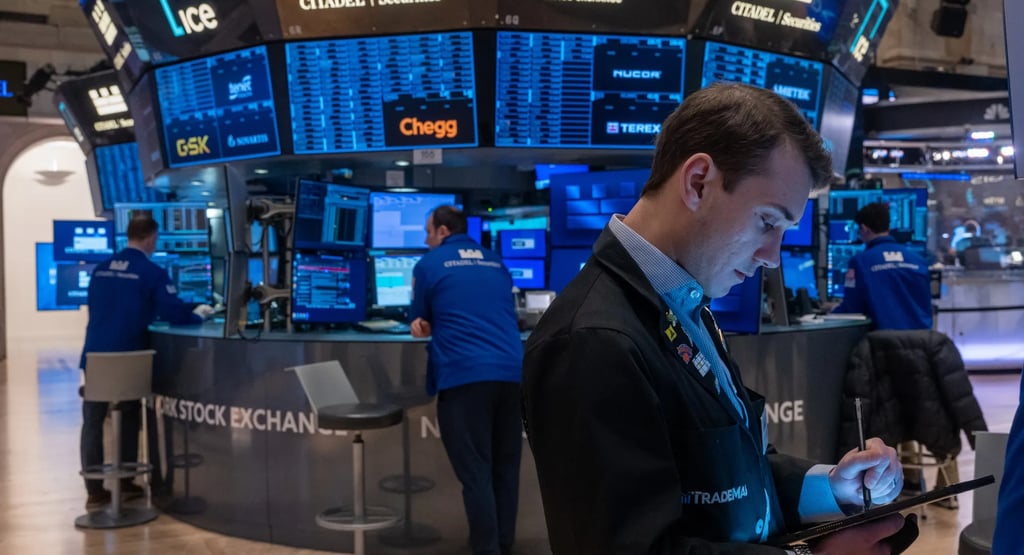Wall Street Rallies as Job Growth and Trade Talk Hopes Ease Recession Fears
U.S. stocks posted a nine-day winning streak, the longest since 2004, as strong job numbers and potential U.S.-China trade talks calmed fears sparked by Trump’s global tariffs.
BUSINESS
BBC
5/3/20252 min read


Wall Street has rebounded strongly after weeks of uncertainty, closing out its longest winning streak in two decades. U.S. stocks have now risen for nine consecutive days, a feat not seen since 2004. The rally comes just a month after President Donald Trump imposed global tariffs, which had initially rattled markets.
The rebound was driven by a stronger-than-expected jobs report and renewed optimism about trade negotiations between the U.S. and China. On Friday, the S&P 500 and Nasdaq both climbed 1.5%, while the Dow Jones Industrial Average rose 1.4%.
Tech stocks led the charge, with Microsoft and Nvidia each gaining more than 2%. The sector’s performance helped fuel broader investor confidence across the market.
The U.S. Department of Labor reported that employers added 177,000 new jobs in April, surpassing analyst expectations. Though the figure marks a slowdown from the previous month, the unemployment rate held steady at 4.2%, signaling ongoing labor market strength.
In a further boost to investor sentiment, Beijing announced it was considering a proposal from Washington to resume trade talks—a positive development in a tense trade environment.
Currently, China faces the highest U.S. import tariffs at 145%, a reflection of escalating trade friction between the two nations.
Economists were quick to interpret the jobs data as a sign that the U.S. economy remains resilient.
“There is nothing to complain about here,” said Carl Weinberg, chief economist at High Frequency Economics. “You cannot find any evidence of a nascent recession in these figures.”
Seema Shah, chief global strategist at Principal Asset Management, echoed the cautious optimism. “The economy will weaken in the coming months but, with this underlying momentum, the U.S. has a decent chance of averting recession if it can step back from the tariff brink in time,” she said.
However, not all experts are convinced that the worst is over. Olu Sonola, head of U.S. economic research at Fitch Ratings, warned that the full impact of Trump’s tariffs has yet to be seen.
“While the jobs report is strong, the outlook remains very uncertain,” he told the BBC.
The market’s recent gains suggest investors are hoping for a soft landing amid trade tensions and economic headwinds. Still, much hinges on whether trade discussions can ease global pressure points—and whether consumer and business confidence can hold up in the face of policy uncertainty.
Photo: Platt/Getty Images
© 2026. Ke Press Global. A Ke Harbor Company. All rights reserved.
FOLLOW KE PRESS GLOBAL ON :
Contact us


